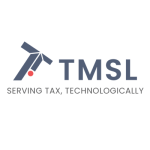We are living the Fourth Industrial Revolution which builds itself upon the Third Industrial Revolution. To recap, the Third Industrial Revolution was the Digital Revolution which began at the end of the 20th century, where personal computers and the internet became household items. Experts believe that the Fourth Industrial Revolution is a technological expansion – or explosion – where boundaries between the real and virtual would get blurred; and technology would become infused in human lives in a way that it becomes difficult to segregate both. This is apparent from the fact that we are ordering food, hailing a cab, buying groceries, booking travel, and tracking our health – all through smartphones. There is hardly any aspect of our daily lives left where technology does not play a role.
Through centuries, it has become distinct that while a revolution is ongoing or in progress, it is hardly known that it will be called a revolution. Only once the revolution matured, it became evident to the generation that they were living in an industrial revolution. Therefore, this Fourth Industrial Revolution can also be said to be at an advanced stage. However, it is far from over.
In the next three to five years, there will be discussions of some newer technological experiences that may or may not be the conclusion of the Fourth Industrial Revolution, depending on how quick and agile the world becomes. Another distinct feature about this industrial revolution is that the time gap between the Third and the Fourth Industrial Revolution is very less when compared with erstwhile revolutions. This is indicative of the fast-paced changes and the enhanced adaptability of the users.
Consumers are not only acclimatising quickly but are expecting newer and better technology every day. The onset of the revolution was with the introduction of robotic process automation (RPA), artificial intelligence (AI), machine learning (ML), cloud computing, and robots, among other developments. However, in its matured form, other innovations including the internet of things (IoT), edge computing, digital twin, 3D printing, 5G, bots and co-bots have come into existence, with the list being never ending.
Increasingly, technology plays a crucial part in all business functions including tax. 'Tax technology' is a term coined for technology solutions which are catering tax. Though the concept is relatively novel, it has become popular very quickly. This is due to the significant benefits that have accrued to all the stakeholders of tax technology including enterprises, governments, and tax consultants. This article discusses the growth of the concept in India, its impact on taxation, and how the roles of related parties have evolved with technological progress.
The rise of tax technology
While some countries are still catching up with the technology spurt in the taxation domain, others are quite ahead in terms of using and adopting technology in tax-related functions.
Worldwide developments
Some successful global examples include:
The Making Tax Digital (MTD) drive of the UK government that has changed the face of UK VAT completely. The system requires businesses to keep digital VAT records and furnish returns using MTD compatible software. Phase 2 of MTD was rolled out on April 1 2021, which shall ensure a seamless digital journey for VAT registered businesses;
Spain has launched a digital VAT reporting system and expanded its monthly VAT filing requirements to include the digital submission of all invoices, customs documents and accounting documents;
The Gulf Cooperation Council (GCC) VAT is the latest addition to the list of nations that have made tax digital. The use of state-of-the-art software for VAT compliances by the government has forced businesses to accelerate digital taxation in the region; and
Poland, following the footsteps of Italy, plans to launch e-invoicing in 2021. A draft law defining e-invoicing or e-faktura (as known in Polish) has been placed in the public domain. It is expected that the proposed system will begin from October 2021.
Indian solutions
India, on the other hand, has actively observed the developments. Even before the roll-out of the landmark goods and services tax (GST) regime, the government was encouraging the use of technology in all tax-related aspects. The direct tax arena saw an early adoption of technology followed by customs and GST. Even post the roll-out of GST, several measures such as e-returns, e-registrations, e-way bills, e-invoicing, and QR codes, have been implemented by the government, which marks important milestones in the digitalisation journey.
India has also successfully implemented e-invoicing, following the steps of various other EU and Latin American countries. Another fact that has complemented the emergence of tax technology in the Indian market is the availability of tax technology solutions and products, such as automated generation of e-invoices and e-way bills once a journal entry is posted, reconciliations between input tax credits, and litigation trackers.
India has been on top of technological developments and private firms have been responsible for bringing the best in the class tax technology solutions to the country. Businesses have also been quick to adapt to these new and better solutions. COVID-19 has only further accelerated this adaptation and has driven businesses to rely more on technology and digitalisation. This is due to the fact that the lockdown taught businesses to work remotely and use technology extensively for smooth functioning.
The changing face of tax
The drastic changes in digital tax compliance and digital governance has led to an evolving role for the stakeholders involved, such as businesses, the government and tax consultants.
The process of technological transformation or digitalisation is challenging for organisations. This is due to several factors which include resistance to change, fear of the unknown, cost concerns, and an inherent job insecurity. For instance, when GST was rolled out, there was utter chaos within organisations, as there was little knowledge of how things would pan out. Furthermore, the tax compliance team also suffered from the feeling of job insecurity, which stemmed from the usage of tax compliance software at an extensive level. Nonetheless, with time, the process got streamlined.
|
|
“India has been on top of technological developments, and private firms have been responsible for bringing the ‘best in class’ tax technology solutions to the country.” |
|
|
However, even today, organisations face difficulties such as frequent changes in the law, the instability of the Goods and Service Tax Network (GSTN) – especially during peak return filing periods, constant digitalisation schemes such as e-way bills, e-invoicing, QR codes, and amended HSN requirements, that loom on businesses persistently. From a technology perspective, organisations are facing hurdles concerning the accuracy and consistency of data, skill development of tax personnel, and tax technology process improvements. As per a survey, 93% of companies use multiple enterprise resource planning (ERP) systems, which leads to more time being spent in cleansing and structuring data, rather than using it for constructive purposes.
Traditional tax teams were required to have tax expertise and an in-depth understanding of the law. However, today, along with the technical knowledge, tax personnel are also required to have technological capabilities. In such a scenario, building a high performing tax function becomes difficult and expensive. Regular day-to-day issues that hamper the productivity of tax personnel has led to a seismic shift in the belief that tax teams should always be placed in-house; and the theory that tax as a function cannot be outsourced like the legal or IT divisions.
CFOs and tax leaders across sectors have started accepting and even encouraging the outsourcing of the tax function (all of it – compliance, advisory and litigation) to experts. Technology has a major role to play in the change of this mindset. Outsourcing tax function results in lowering costs, streamlining processes, implementing expert opinions and freeing up the time of tax personnel to deliver more in terms of strategic decision-making.
The evolving role of tax consultants
Less than a decade ago, tax consultants had rarely heard of RPA or use of AI in taxation. However, thanks to the technology storm, tax consultants are increasingly not only aware of these technologies, but are using these in their regular activities. Intelligent automation has carved out its space even in the consulting business. Moreover, tax consultants are not limiting their scope of work to tax compliance, litigation and advisory; but are extending it to helping clients make strategic decisions.
Tax process outsourcing has opened another horizon of opportunities for tax consultants. Globally, tax consulting firms are also engaging with their clients in activities like tax process enhancement and tax function health-check-ups, which aim at identifying the mundane and redundant activities, suggest effective tax function models, and simplify the tax process in entirety.
It should not come as a surprise that the role of a tax consultant would change even further. The dynamics of tax technology would change sooner than expected, forcing tax consultants to upskill at every stage.
The proactive governmental approach
It will not be an exaggeration to say that the regulatory ecosystem across the globe has been the key driver in making businesses adapt to tax technology. The traditional image of the government being sluggish and indolent has yet not left our minds. However, modern-day revenue departments have taken up the challenge of adopting technology in their stride. It is this willingness of the revenue departments to use technology in their routine activities, which has pushed enterprises to enhance their technology quotient.
Worldwide developments
The objective for revenue departments in augmenting their technology usage is more than obvious – increased revenue collection. A classic example for this was when in 2015, the Russian government required VAT assessees to submit transaction level data along with their VAT returns. Consequently, domestic VAT revenues increased by more than 12%, in absolute terms amounting to $4 billion.
Another factor that positively contributed to the government's proactiveness is the COVID-19 pandemic. Working with remote workforces to reanalyse audit and assessment strategies was an uphill task. At the same time, the revenue department had to ensure that collections do not decline. Even though robust measures were taken, governments saw a significant dip in collections around the globe.
For instance, Brazil's federal tax collection in June 2020 fell to a 16-year low for the month; and the South African Revenue Service reported an under-recovery of $4.8 billion for the fiscal year through July 2020. The governments deserve appreciation for leaving their comfort zone of conducting physical audits and assessments and moving to technology.
Indian solutions
Even the Indian revenue authorities did not let the pandemic hinder their jobs. In fact, India was amongst one of the few countries that rolled out a reform as large as e-invoicing right in the midst of the pandemic. Moreover, the introduction of business-to-consumer (B2C) QR code requirements, GST annual returns, GST assessments, GST departmental audits, were not obstructed in any manner; all thanks to the technology-based platform – GSTN.
Consequently, India witnessed an all-time high GST revenue collection from October 2020 onwards. In the recently released collection figures, the Finance Ministry has revealed that the provisional net indirect tax collections for financial year (FY) 2020–21 recorded a growth of 12.3%; 108.2% of revised estimates of indirect taxes for FY 2020–21 has been achieved. This is a feat in itself.
The Indian GST department also conducted an aggressive drive against fake invoices and fake tax credits during the pandemic. It relied heavily on advanced analytics and data mining techniques to identify the loopholes. Additionally, the indirect tax department and the direct tax department have signed a memorandum of understanding (MOU) for exchange of information to identify revenue leakages in the system. Not only within the country, but India has signed a couple of information exchange agreements with several countries. This can only mean more reliance on data by the government.
Understanding the future of tax
In this new era, stakeholders of tax technology are keen on making the tax function automated and digitalised. The technological advancements are also conducive in making the tax function completely digital. However, as discussed above, the technology transformation would be more government-driven.
The availability of a varied tax technology solution helps the cause. Pre-emptive steps taken by revenue departments like acquiring and implementing technology and hiring skilled technologists marks an indication of the tax space getting engulfed by technology sooner than one could anticipate.
On the business front, enterprises would have to realise that they need to be on their toes to match up with the speed of the technological revolution. Some key areas that would need immediate attention are:
Upskilling tax teams in key technology areas;
Exercising control over data management;
Setting up processes that tie tax with technology; and
Comparative analysis between building in-house tax technology teams, or outsourcing it to experts.
The possibilities in the tax technology space are endless. One needs to be agile and have the willingness to evolve as and when needed, even if it is every day. Tax technology could prove to be the foundation of a sustainable tax compliance space and give competitive advantages to organisations. If one looks around carefully, it can be easily understood that technology is not a value addition anymore; it is now at the core of each business function.
As Stewart Brand once said – "Once a new technology rolls over you, if you're not part of the steamroller, you're part of the road".
Click here to read all the chapters from ITR's India Special Focus
Jigar Doshi |
|
|---|---|

|
Founding partner TMSL T: +91 98202 03026 Jigar Doshi is the founding partner of TTMS (Tax Technology Managed Services), also known as TMSL. He has over 17 years of work experience in the field of indirect taxation, and has previously worked at a Big Four firm in a senior position. Jigar's domain of expertise includes GST, customs, erstwhile indirect taxes and UAE VAT legislations. He has assisted organisations in the implementation of GST and UAE VAT laws, and often associates with trade bodies, foreign embassies and associations for speaking engagements and trainings on the topics. Litigation, governmental/department audit, scrutiny and filing representations with government authorities are other areas of his forte. He also assists multinationals in obtaining incentives under various schemes such as special economic zones (SEZ), authorised economic operators (AEO), and transfer pricing. Jigar is a chartered accountant. He was notably a part of the 15-member Group of Ministers meet for the simplification of the GST return process. He has trained government officials and is also an empanelled trainer at the National Academy of Customs Excise and Narcotics. He writes regularly for various journals and speaks at several forums. |
Pratik Shah |
|
|---|---|

|
Founding partner TMSL T: +91 98335 32232 Pratik Shah is the founding partner of TTMS (Tax Technology Managed Services), also known as TMSL. He has over two decades of experience in indirect taxes, and has also worked with a Big Four accounting firm in a senior position. Pratik is an expert in GCC VAT legislations and Indian indirect taxes. He has substantial experience in advisory, compliance, litigation, representations to the government, and refund assessments for the GCC and India. He has assisted various corporates in implementing VAT in the GCC. Advisory on supply chain set-up and distribution from an efficient indirect taxation perspective is his forte. He is also proficient in preparing financial models and structuring transactions from an indirect tax perspective. Pratik is a chartered accountant. He has served as an advisor to the SEZ committee and interacts on a regular basis with the Ministry of Finance on various indirect tax matters. He regularly addresses various chambers of commerce on indirect tax implications on industries, and has delivered tax awareness session at the Indian Embassy in Oman. He regularly writes for various journals and online forums, and has contributed to a guide by the World Bank. |













